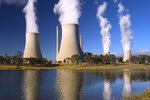Craton
Mostly passive, contrarian.
- Joined
- 6 February 2013
- Posts
- 1,712
- Reactions
- 2,393
Apology if this has been posted/discussed elsewhere but Albo's proposed coal and gas price cap along with financial aid will most assuredly dampen SP is those stocks affected, e.g ORG.
So, is it a done deal and will the proposed pass through parliament?
The market seems to think so.
Below is from the ABC
So, is it a done deal and will the proposed pass through parliament?
The market seems to think so.
Australia To Impose A Cap On Coal And Gas Prices
By Irina Slav - Dec 09, 2022, 2:23 AM CSTAustralia has joined the club of countries imposing price caps on energy commodities with a ceiling on gas and coal prices, announced today by Prime Minister Anthony Albanese.
The price of natural gas will be capped at $8.15 (A$12) per gigajoule and at $85 (A$125) per ton of coal and the cap will be in effect for a year. The government will provide additional support for coal miners who have higher costs than the cap, the Prime Minister also said.
"Extraordinary times call for extraordinary measures, and we know, with the Russian invasion of Ukraine, what we've seen is a massive increase in global energy prices," Albanese told media, as quoted by Reuters.
The price cap comes in spite of warnings from the gas industry that this would discourage investments in future supply. In addition to the cap, the government will provide financial aid to households and businesses to the tune of $810 million (A$1.2 billion).
Below is from the ABC
Coal and gas price caps and whether they'll lower your energy bills explained
By energy reporter Daniel Mercer
Posted Sat 10 Dec 2022 at 6:43amSaturday 10 Dec 2022 at 6:43am, updated Yesterday at 11:12am
When historians look back at 2022, one of the defining features will surely be the sheer scale of an energy crisis almost unparalleled in modern times.
From the start of the year, when resurgent northern hemisphere economies put a rocket under coal and gas prices, to Russia's invasion of Ukraine that sent those prices into orbit, the past year has been a wild ride.
In a bookend to the drama, the national cabinet of federal and state leaders thrashed out a deal on Friday to shield consumers from the worst of the energy price fallout.
What's in the deal and how it will flow through the system will be top of mind for wary consumers, many of whom will be heading into 2023 nervous about the cost of living.
Gas plays a hugely influential role in setting electricity prices, and is a crucial input for many industries.(Supplied: AAP)
What's in the plan?
Headlining the plan hammered out between Prime Minister Anthony Albanese and state leaders are caps on wholesale gas and coal prices.
For gas, producers will be unable to charge any more than $12 a gigajoule for the product they sell – a massive step down on the average price so far this year of $41 a gigajoule.
The price cap for coal will be similarly restrictive, at $125 a tonne for uncontracted thermal coal sold ostensibly out of New South Wales and Queensland.
A further element in Thursday's package is $1.5 billion in Commonwealth funding – matched by the states – for vulnerable customers.
The money, which will be distributed by the states, will be delivered in the form of reduced bills rather than cash handouts, amid fears the latter would fuel runaway inflation.
Prime Minister Anthony Albanese says an energy relief package is aimed at "shielding" consumers.(ABC News: Ian Cutmore)
Finally, Mr Albanese said the federal and state governments would try to tackle power prices in the long-term through the deal struck on Thursday to underwrite "firm" capacity, such as batteries and pumped hydro that could back up intermittent renewable energy sources.
He noted the federal government was also aiming to fast-track high-voltage power lines needed to connect new green energy capacity through its $20 billion Rewiring the Nation scheme.
Will the deal work?
While the details of the announcement were welcomed by consumer groups, don't expect the relief package to give you cheaper power bills.
Coal and gas prices to be capped
The government expects its intervention into the energy market will spare the average household from $230 in otherwise expected energy price hikes next year, as national cabinet agrees to impose price caps on gas and coal.
Read more
Realistically, the suite of measures agreed by national leaders will simply take some of the sting out of expected price hikes for most consumers over the coming months and years.
But that's still something to cheer for the average household, small business or industrial energy user.
Typical household power bills have already risen between 20 and 30 per cent in 2022 and, as has been well documented, they were forecast to rocket another 56 per cent over the next two years.
By capping the price at which wholesale gas and black coal can be sold, governments are effectively putting a lid on the pressure building up within the supply chain, at least in the short term.
When a gas producer, for example, puts a term sheet in front of a buyer, they will be prevented from offering a price greater than $12 a gigajoule – significantly more than historical prices of about $5 a gigajoule, but miles below average prices this year.
Coal is still the mainstay of Australia's electricity supply, and its price has been rocketing.(Supplied: david_a_l/Flickr.com, CC BY NC ND 2.0)
It's a similar story for coal, which has been fetching record prices of more than $300 a tonne in 2022.
Contracted coal and gas, which typically make up far greater volumes than uncontracted supplies, will be unaffected by the announcement.
Crucially though, the price caps will take much of the volatility and high prices out of the wholesale market, which is usually a benchmark for longer-term deals.
When will I see it in my bill?
The full effects of the changes are unlikely to be felt for some time – possibly not until mid-next year.
But in the short term, there are hopes, even expectations, that the intervention by governments will flow through from February.
That's when energy retailers are required to spell out their latest benchmark prices – known as default market offers – to consumers.
Many – if not most – other prices are set using the default market offers as a reference, so pushing those lower than they otherwise would be sends a powerful signal.
On top of this, the "targeted relief" to be provided by the Commonwealth through the $1.5 billion of extra assistance means millions of vulnerable consumers will be given additional help.
Among them are pensioners, the unemployed and poorer families, although the details of how the states will distribute the federal money are yet to be worked out.
Big coal-fired plants such as AGL's Bayswater in New South Wales are retiring in rapid succession.(Supplied: AGL)
Mr Albanese said inaction would have all but guaranteed the whopping price rises forecast in the Federal Budget for 2023 and 2024.
Instead, reports suggest bills will increase by $230 a year less for the average household than they otherwise would have.
"What it will do is put downward pressure on those increases which were envisaged," Mr Albanese said.
"If we sat back and didn't take action, then we know that impact would occur as was predicted by Treasury."
How will this affect producers?
The immediate reaction from the Australian Petroleum Production and Exploration Association (APPEA) – the lobby representing oil and gas producers – was one of swift condemnation.
APPEA warned the intervention was a radical one that would "smash" confidence in Australia as an investment destination for the industry.
Chief executive Samantha McCulloch argued the package would ultimately be counterproductive by choking off new supply and pushing up prices for users.
She argued it also sidelined an agreement with the federal government for producers to sell more gas domestically.
"A gas price cap will force prices higher for households and businesses because it will kill investment confidence and reduce future supply," Ms McCulloch said.
"Less gas will ultimately mean higher prices while threatening Australia's energy security, our emissions reductions goals and the enormous economic benefits that the industry delivers for Australians.
"This heavy-handed, radical intervention has been conducted with no prior consultation with industry to consider specific measures and warn of potential risks to Australia."
Australia is one of the world's biggest gas producers, but most of its output is exported.(Supplied: Woodside Energy)
Critical to the industry's concerns is the duration of the price caps.
At this stage, Mr Albanese insists the measure will only stay in place for 12 months to help Australia ride out the worst of the global energy crisis.
But the federal government is already facing questions about whether it will need to be extended, fuelling fears among producers.
What about long-term impacts?
Though the Prime Minister was at pains to say the governments' actions were for "extraordinary times", the pressure to keep a lid on energy prices is unlikely to fall any time soon.
Experts generally forecast the upheaval in energy markets to last for years, as the transition away from fossil fuels towards renewable sources heats up.
As that happens, ageing – and in some cases even new – coal and gas-fired power plants will exit the market as their business models and equipment are wrecked by the competition.
But, of course, that heightens the pressure on everybody – particularly governments – to ensure the replacement wind, solar, battery and pumped hydro capacity is built in a timely way.
There's also a growing urgency around the need for the transmission lines that will be required to take the electricity from the new sources of power, often in sunny, windy regional areas, to where it's used, often vast distances away in the cities.
None of these things can be done cheaply or easily.
The rise and rise of intermittent renewable energy is playing havoc with coal-fired generators.(Supplied: Michael Abrahams)
And therein lies the monumental challenge for the people running the country, not to mention the investors needed to stump up the money, the construction firms needed to build the assets and the power industry that'll have to operate them.
In the short-term, Mr Albanese and state leaders are seeking to shift some of the costs of bill relief on to the producers.
Longer term though, consumers cannot expect to be shielded from all of the costs arising from the once-in-a-century overhaul of the grid.
What's more, the increasing rate of government intervention in the energy market is a sign of things to come.
Expect more of the heavy lifting to be done by the state – and taxpayers, by extension.
Ultimately, many observers argue Australia's abundant supply of cheap renewable energy will put a permanent lid on power prices.
The road to that destination will be full of potholes.
And it may take some time to get there.
Posted 10 Dec 2022 10 Dec 2022, updated Yesterday at 11:12am









